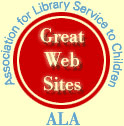
CRLS Research Guide
|
|
The Encylopedia Method
Tip Sheet 8aAsk these questions:
What is it?
How do I do it?
The Encyclopedia Method- CRLS Research Guide
Look up your topic in a general encyclopedia. (You should have done this once already when you looked for an overview.) If you were not able to find the exact name of the topic, look it up in the index volume of the encyclopedia (it is usually at the end of the set) and find out the title of the article under which it is included, then look up the article in that volume. If you are not comfortable with using encyclopedias, ask a librarian for help.
Can't Find it?
If you cannot find anything about your chosen topic in a general encyclopedia, you may have to either broaden the topic, change it, or get some help finding another overview source. Ask a librarian.
Too short?
If you find an article about your topic and it is very short (less than a column) you may have to either broaden it or combine it with another topic using a compare/contrast or some other strategy.
Too Long?
If the encyclopedia article is more than 5 pages long (the Middle Ages, World War II, the human body, dogs, plants, etc.) you will most certainly need to focus the topic down to a narrower one. (see below to do that)
Just Right?
If you can find at least 2 columns, or up to 2 pages about your topic, you probably will be able to find enough material in other sources to write at least a 3-4 page paper about the topic, probably more, if you are creative with your approach. You will probably be able to make the whole topic your paper, but you still may need to do some focusing of the topic.
Focusing Using an Encyclopedia Article
Most good encyclopedias have helpful headings and sub-headings to organize the information within their longer articles. Some even have outlines at the end of the article so you can see quickly how they have organized the entire subject. You can use these headings to help you focus your topic by picking one that looks interesting. You can read the entire article for an overview of the complete subject (or at least a few sections on either side along with the introduction) and then focus the rest of your information search on the smaller sub-topic you have chosen. You can also use the 'related articles' section at the end of the article to direct you to more useful information about the topic. You may need to do this a few times until you get your topic down to a reasonable size.
For example:
Say you need to do a project about the Renaissance in Europe. You look it up in an encyclopedia and find a huge article. First you read the first few introductory paragraphs for a general overview, then you skim the whole article quickly, just reading the subtopic headings and looking at the pictures. You see that there is a section on architecture and that is a subject you've always been interested in, so you read that section. While you are reading about Renaissance architecture you discover some names of important architects like Brunelleschi. So you look him up and find there is huge amount just about his work, along with some neat pictures of buildings he designed. You have now focused/narrowed your topic down from the Renaissance, to Renaissance Architecture, to the Renaissance Architecture of Brunelleschi. Once you read more about his life and work in other sources, you may want to focus it down even further to a period in his life, some buildings he designed, or the impact of his work on that of other architects. Or, you may choose a different architect or architectural style...
Just as a building can be designed in an endless variety of ways, given certain basic needs like doors, walls, etc. so you can be the designer of your research topic. Take it where you will!



